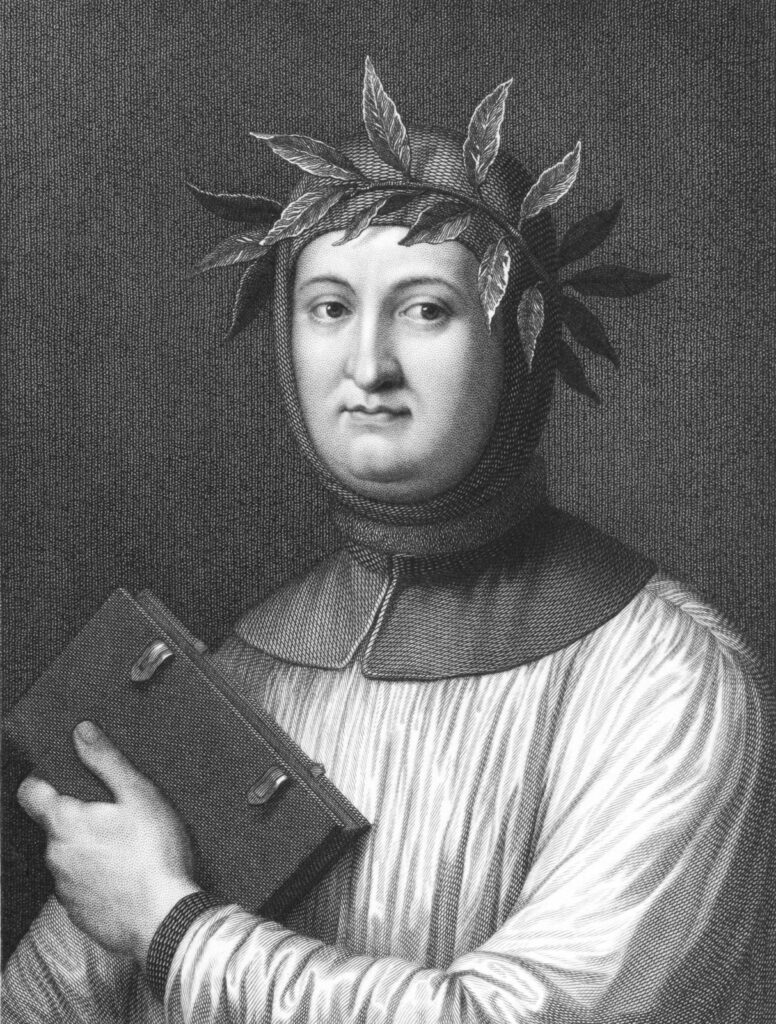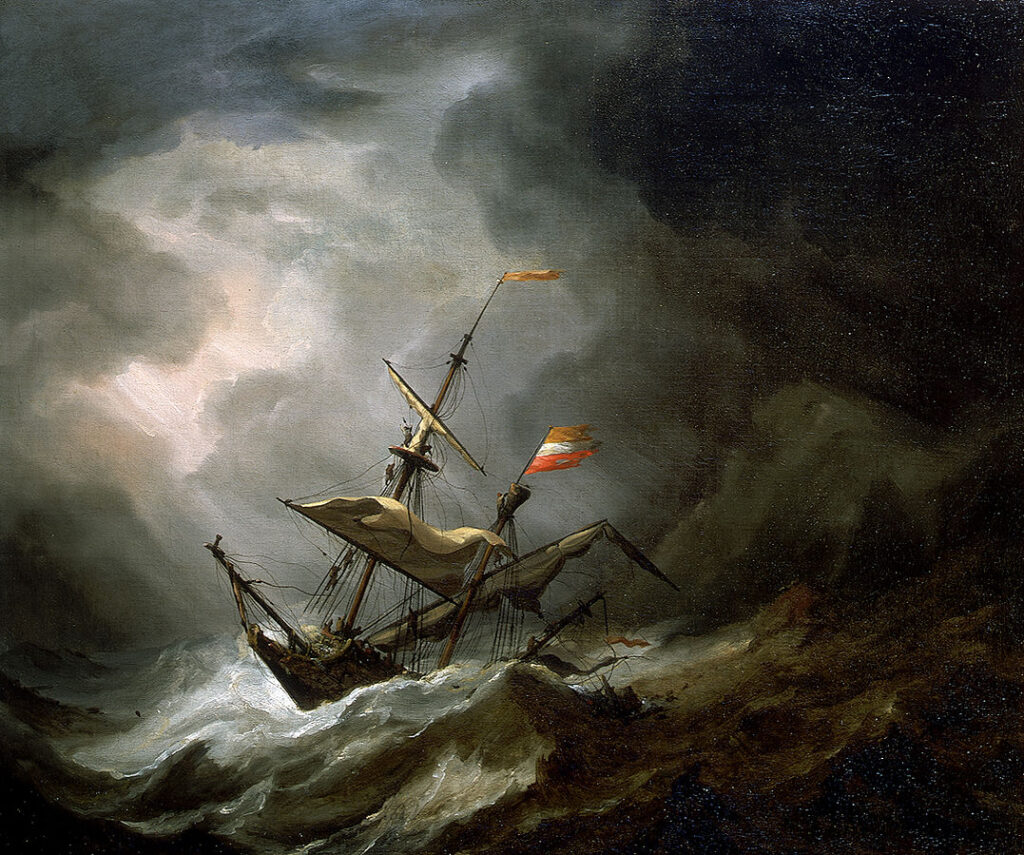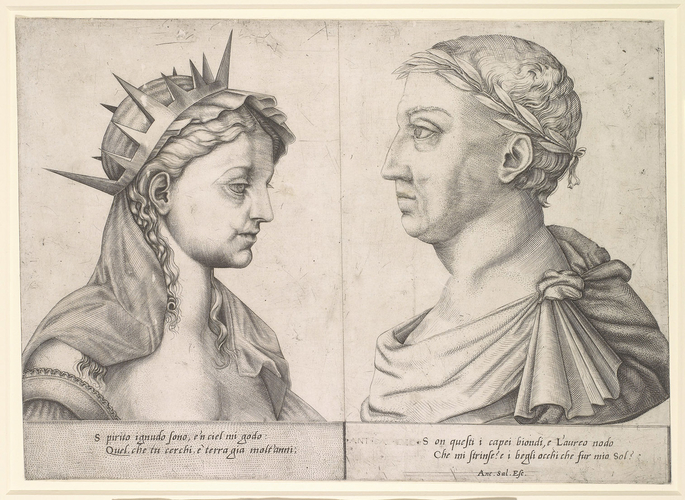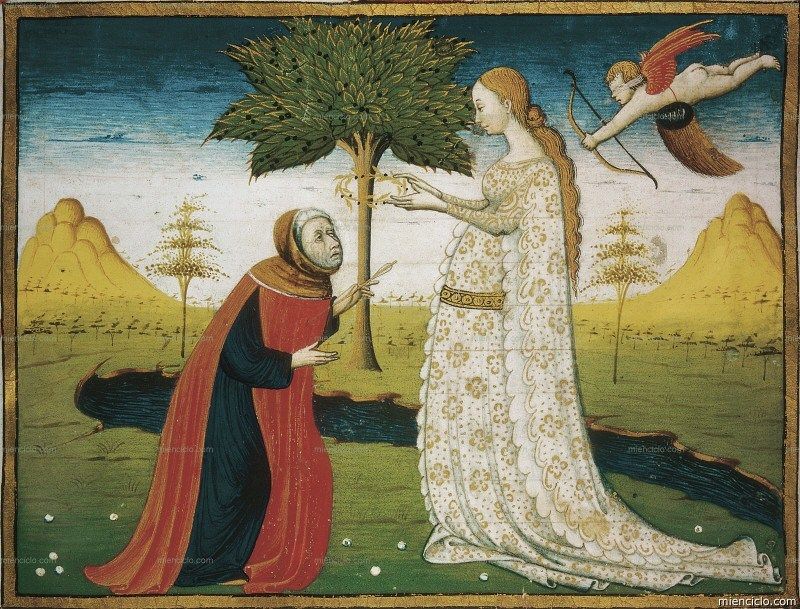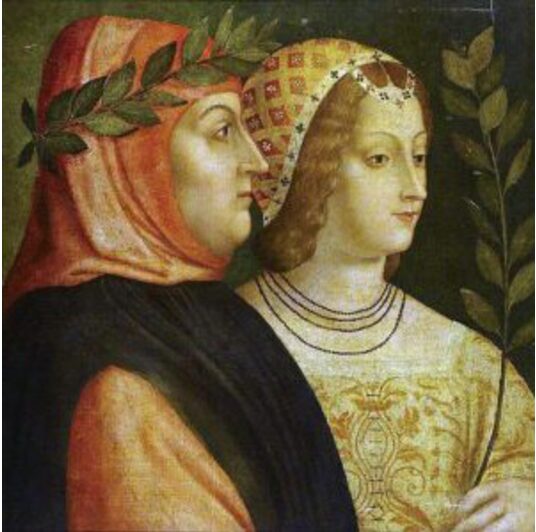Throughout Il Canzoniere 134 Petrarca uses tone and oxymorons, which makes his overwhelming sentiments caused by Laura evident. With the use of different figures of speech he creates a sense of sadness incorporated with hurt. In the first stanza, Petrarca makes two statements that seem to oppose each other but are more focused on himself and his current state. “I find no peace, and I am not at war, I fear and hope, and burn and I am ice;” he is beginning to set the tone to the poem by expressing the turmoil within himself. He begins by stating how he isn’t happy and at peace with himself yet he isn’t at war either to create a dramatic sense of his emotions.
Petrarca then transitions to mentioning Laura and how not having his feelings matched by her affects him. “One keeps me jailed who neither locks nor opens, nor keeps me for her own nor frees the noose;”He begins to use words that mention another individual (Laura) and her actions that seem to contribute to his mood. By capitalizing in the sudden pauses he brings the readers along with him through his emotional journey. In the first stanza we felt his sense of feeling absent within himself while he is trying to figure out what he feels to a now a messy disheveled and desperate state of thoughts. The sudden pauses in the second stanza makes his disheveled state clear as it seems as though he is trying to figure out and pinpoint the feeling her rejection has caused “ Love does not kill, nor does he loose my chains;” He feels like his pain is being inflicted on him and is trying to make sense of it, for he loves Laura but not having his feelings reciprocated by her is causing his suffer.
In the midst of trying to make sense of his emotions he begins to put the blame towards Laura, his “lady”, by stating that it’s her fault that he is in such anguish and torment. “I dislike death as much as I do life: because of you, lady, I am this way.” The shift in phrasing here suggests a profoundly dramatic tone while also emphasizing “I,” implying a scratch to the poet’s ego.

Petrarca’s emotions of hurt and anguish is conveyed through the way the poem is written with the sudden pauses to create a sense of confusion, to the oppositions paired together. Overall illustrating a roller coaster of feelings Petrarca takes the readers along as he tries to clear his emotions and pinpoint the cause.


